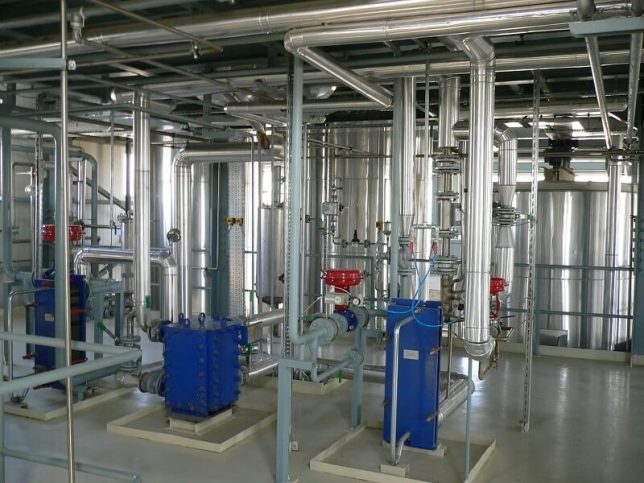Table of Contents
- Introduction to Winterizing in Vegetable Oil Processing
- What is Winterizing?
- The Winterizing Process
- Cooling
- Filtration
- Producing Clear Oil
- Benefits of Winterizing Vegetable Oils
- Improved Appearance
- Extended Shelf Life
- Higher Product Quality
- Why Winterizing is Essential for Food and Cosmetic Industries
- The Role of Technoilogy in Advanced Winterizing Solutions
- Expertise in Oil Refining Technology
- Commitment to Efficiency and Quality
- Conclusion
Introduction to Winterizing in Vegetable Oil Processing
Vegetable oils are widely used in food production, cosmetics, and pharmaceuticals, where clarity and stability are essential for consumer appeal and product performance. However, some vegetable oils contain natural waxes and solid impurities that can cause cloudiness when stored at lower temperatures.
To enhance clarity and quality, a refining process known as winterizing is used. This removes waxes and other solid particles, ensuring that oils remain clear and visually appealing, even in cool conditions.
Winterizing is an essential step in processing sunflower oil, corn oil, rice bran oil, and other vegetable oils, preventing crystallization and improving product presentation and stability.
What is Winterizing?
Winterizing in vegetable oil processing is a cooling and filtration process designed to remove waxes and solid impurities that can lead to cloudiness.
This process is particularly important for oils that naturally contain high wax content, such as:
- Sunflower oil
- Corn oil
- Rice bran oil
- Sesame oil
By eliminating unwanted waxes, winterized oils remain clear, stable, and aesthetically appealing in consumer markets.
The Winterizing Process
Winterizing vegetable oil involves controlled cooling and filtration to separate and remove undesirable solid components.
1. Cooling
- The oil is gradually cooled to a low temperature, causing waxes and solid particles to crystallize and solidify.
- This step ensures that only temperature-sensitive impurities are targeted without affecting the oil’s nutritional or chemical properties.
2. Filtration
- The solidified waxes are separated through a filtration system, leaving behind clear, refined oil.
- This step prevents hazy or cloudy oil formation, particularly in colder climates and refrigerated storage conditions.
3. Producing Clear Oil
- The final result is a transparent, refined oil that remains clear at low temperatures.
- This enhances the oil’s marketability, ensuring that it meets industry quality standards.
-
3 Benefits of Winterizing Vegetable Oils
1. Improved Appearance
- Removes cloudiness, making oils more visually appealing to consumers.
- Ensures consistency and transparency in packaged products.
2. Extended Shelf Life
- Eliminates unstable waxes that can cause premature spoilage.
- Improves oil stability, allowing for longer storage without quality degradation.
3. Higher Product Quality
- Meets food and cosmetic industry quality standards.
- Ensures that the oil remains smooth and refined, preventing unwanted crystallization or sedimentation in the final product.
-
Why Winterizing is Essential for Food and Cosmetic Industries
Winterizing is widely used in industries where oil clarity and stability are essential, including:
- Food Industry – Ensures that vegetable oils used in dressings, frying, and packaged foods remain clear and visually appealing.
- Cosmetic Industry – Prevents clouding in skincare oils, hair treatments, and beauty formulations that contain vegetable oils.
- Pharmaceutical Industry – Ensures purity and stability in oil-based medicinal formulations.
By improving aesthetic appeal, functionality, and shelf stability, winterizing plays a crucial role in enhancing product quality and consumer satisfaction.
-
The Role of Technoilogy in Advanced Winterizing Solutions
Expertise in Oil Refining Technology
Technoilogy specializes in state-of-the-art winterizing technology, offering high-performance solutions for refining vegetable oils.
Commitment to Efficiency and Quality
Technoilogy ensures that winterizing processes:
- Effectively remove impurities while preserving oil integrity.
- Enhance product clarity and stability, making oils more market-ready.
- Optimize energy use, reducing processing costs and environmental impact.
By integrating advanced winterizing techniques, Technoilogy supports manufacturers in delivering premium-quality vegetable oils for food, cosmetic, and industrial applications.
-
Conclusion
Winterizing is a critical refining step that ensures vegetable oils remain clear, stable, and visually appealing in various conditions. Through controlled cooling and filtration, this process removes waxes and solid particles that can affect oil quality and presentation.
With growing consumer demand for high-quality, refined oils, winterizing helps manufacturers meet industry standards while improving product shelf life and functionality.
Technoilogy continues to lead in innovative winterizing solutions, providing efficient and reliable technology for producing high-purity vegetable oils for diverse applications. Contact Us today

